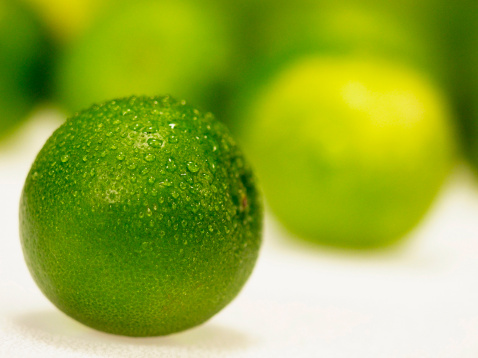Marinades Made Easy
Want to know how to transform a boring piece of chicken into something that's juicy, tender, complex, and flavorful? Or how to take a flavorless piece of flank steak and turn it into mind-blowing carne asada? How about how to put the mojo into that mojo pork?
Click Here to See 10 Marinade Recipes From the Pros
It's all in the marinade.
Marinades have been part of our culinary vocabulary for quite some time now — people are always talking about what's in them, how long to use them for, and what kinds are best for particular types of meat. While similar, marinades are different from sauces; they're a starting point, not a finishing point, and they're seen as that "extra" step before cooking. According to Dinosaur Bar-B-Que's owner John Stage, marinades, in their simplest form, are used to add flavor and complexity, and we're here to explain how.
According to Stage, the composition of marinades is simple: acid, aromatics, and oil. These three components of a marinade work together like a fine-tuned machine to transform a piece of meat into something that is tender and flavorful. Think of it as a chemical compound, where acid, aromatics, and oils are individual atoms that work together to create a chemical reaction. The best part is that with each of the three components, there's room for variation and creativity — it's easy to play around with the marinade elements to create flavors and results that you want for the specific type of meat you're cooking. Below, we've broken down the three parts of a marinade and have given some ideas on how you can craft your own marinade.
Acid
The acid in the marinade is what yields the tender, juicy piece of meat. Enzymes found in the acidic component become lean, mean, protein-eating machines and break down the tougher muscles and connective tissue found in the meat. Acids can be in the form of citrus juice, such as lemons, limes, and oranges, or in the form of vinegars. It's also common in some cooking such as Indian to use acidic dairy products such as yogurt and buttermilk as the acidic component of the marinade. Stage loves using citrus-based marinades for more tender cuts of meat, such as chicken and fish, where vinegar is required for tougher types of meat like a London broil or a thick cut of beef. Below are our favorite acids to use and what we use them with:
- Lemon juice — chicken, halibut, sole
- Lime juice — shrimp, flank steak
- Red-wine vinegar — brisket, short ribs
- Orange juice — pork chops, scallops
- White-wine vinegar — veal chops, lamb
- Buttermilk — chicken wings and thighs
Aromatics
Aromatics are used to impart flavor to the meat, and come in many different forms. Most common are base ingredients such garlic and shallots, spices, and herbs. Milder herbs such as thyme and oregano go great with chicken and a bit of lemon juice, while strong spices such as cayenne or chile powder have a tremendous impact on tougher pieces of meat. Other flavor additions include condiments such as soy sauce, mustard, ketchup, and barbecue sauce. Aromatics are the most fun part of the marinade equation because there's more than enough to choose from. Another addition to aromatics is sugar, which not only imparts flavor to the marinade but yields a crunchy, caramelized result when cooking the meat. Below are some of our favorite aromatic combinations:
- Garlic, thyme, oregano
- Mustard, soy sauce, garlic powder
- Shallots, onion powder, soy sauce
- Jalapeños, cilantro, honey
Last but not least are the oils, which bind together the rest of the ingredients. The oils are an important component not only because they bind the other components together and make it easier to cook the piece of meat, but it is the one part of the marinade where you can control the healthiness of your marinade, says Stage. If you're looking for something diet-friendly, try oils that are low in saturated fats such as corn, sunflower, and grape seed. Other oils such as peanut and sesame may not be diet-friendly, but have very distinct tastes and are another way to play around with the flavor of your marinade.
Other Things to Remember About Marinades From Stage:
- Never make your marinade or marinate your meat in a metal bowl. The acid component of a marinade will react with the metal and can leach poisons into your food.
- Avoid cross-contamination with marinades; never marinate different types of meat in the same bowl, and never use the marinade after cooking. If you do want to use the marinade afterward, make sure to boil it for at least 20 minutes to cook off any bacteria.
- Different types of meat call for different times when marinating. For tougher pieces, such as pork shoulder, overnight is best, whereas chicken or fish should only be done for one to two hours, and thinner cuts of beef are usually good with four.
- Stage urges cooks to dry off their meat after marinating. Just because you wipe it away doesn't mean the marinade didn't work, and your meat will brown better because it will not be as wet.
- Get physical. The chemical reaction discussed above will only happen if there is direct contact with the meat and the marinade, so the best practice for marinating meat is to add the meat and marinade to a Ziploc bag, sealing it airtight.
Anne Dolce is the Cook Editor at The Daily Meal. Follow her on Twitter @anniecdolce

